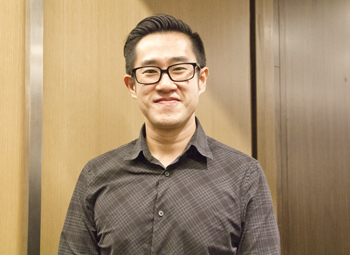Young Children’s Voices in Mathematical Problem Solving
Contributed by Dr Ho Siew Yin and Sng Wei Qin Abbie, from NTUC First Campus, for SingTeach Virtual […]
Read More
To many, drama is a form of performance arts. But to a group of MOE researchers, it can be a fun and engaging way to nurture values and develop character in young children.
A group of adults were pretending to be students on an exchange programme. They knew very little English and tried hard to converse with their English-speaking partner. Furrowed eyebrows, hand gestures and empathetic faces were spotted all around the room.
This was a scene from Mr Adrian Wong’s session at the Teachers’ Conference 2014.
“Were there any props? Were there any costumes? Or lights?” the researcher from the Arts Education Branch, Student Development Curriculum Division, MOE, quizzed the audience. “No, it was very simple role play but you get drawn into it very quickly.”
Similarly, such role playing in the classroom can be fun for young children and help with character development and learning of values.

In 2012, Adrian and his research team began designing a series of lesson plans and professional development to introduce drama as part of the Performing Arts domain in Programme for Active Learning (PAL). (Find out more about PAL in the box story below.)
Last year, a pilot study was conducted in five schools and the research findings indicated positive responses from school leaders, teachers and parents, which were highly encouraging for the team.
This year, they shared the PAL (Drama) lesson plans with schools and conducted workshops for more teachers.
Drama provides an authentic learning experience for pupils. This student-centric pedagogy brings out the essence of a PAL lesson: experiential learning.
Typically, teachers will set up thought-provoking scenarios for role play and encourage their pupils to empathize with the characters and be part of the decision-making process.
For drama to be a productive pedagogy in PAL, teachers need to take on a role to model role play for their pupils. Also, they can introduce the moral and ethical dilemmas for pupils to manifest their values and exercise decision making.
Through group work and participating in imaginary role play in a playful learning environment, pupils can become more self-aware and also connect better with the people around them.
Adrian shared that due to changing times and technology, young learners may have less face-to-face interaction with people. Injecting drama in PAL gives them opportunities to exercise their interpersonal skills during role play.
“Perhaps due to increasing social isolation, young learners might not be able to attend to social cues that we have taken for granted, like making eye contact during a conversation,” Adrian says. “Very simple things become necessary for teachers to teach them.”
But it would be strange for a teacher to literally teach children to “look at each other in the eye while talking”, especially when there is no context for them to relate to. Is there a better way to nurture such social skills in children naturally? Through imaginary role playing, of course!
“Can you imagine a classroom full of students having fun while learning?” Adrian asks. “It can be loud but it is actually productive noise, isn’t it?”
Can you imagine a classroom full of students having fun while learning? It can be loud but it is actually productive noise, isn’t it?
– Adrian Wong, Arts Education Branch, Student Development Curriculum Division at the Ministry of Education
At the conference, Adrian demonstrated how role play can be carried out in a classroom. With a blue cap on his head and a spray can in his hand, he was instantly transformed into Baz the vandal. He was, of course, demonstrating the drama strategy of teacher-in-role.
Baz loves art and he expresses it by going around the neighbourhood playground and spray painting his name on the walls.
What are you doing? Why are you doing it in the playground? You shouldn’t do that here. It’s public property. People wouldn’t like that. That is not right, Baz. I think you should stop.
These were comments made by the conference participants – similar to what young children might say in the classroom.
“When young children ask these questions,” Adrian says, “they probably are starting to be aware that the person committing the act isn’t aware that it is wrong, and so they try to persuade that person to stop doing it.”
To nurture a sense of empathy in young children, Baz has to answer the questions strategically. Adrian calls this “planned teachable moments”.
Public property means it belongs to me too. I have nowhere else to go. There is no one at home. Where should I go? Where should I do this then?
“The function of teacher-in-role is to set up the scene such that children can empathize with the character and his difficulties in order to trigger their thought processes to think through such issues further,” he explains. It is, indeed, part of pupils’ learning to understand that making the right decisions in real life is difficult too.
It is this natural ability to pretend play in children that brings out the potential of drama for the learning of values in the classroom. It is also this very ability that brings out the best in young learners.